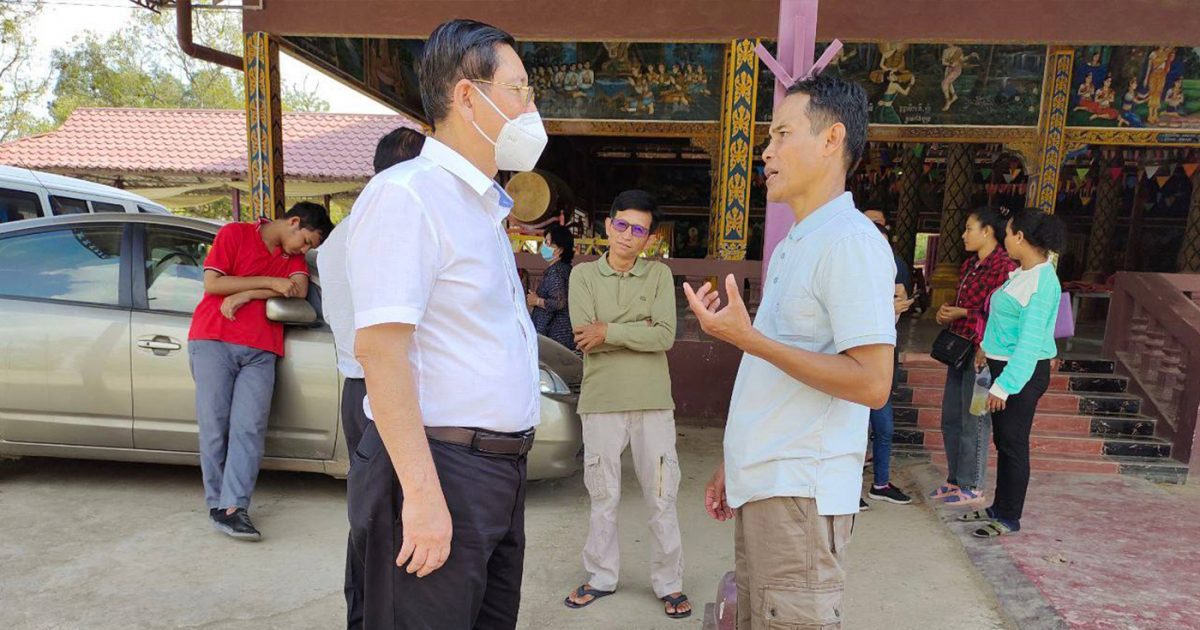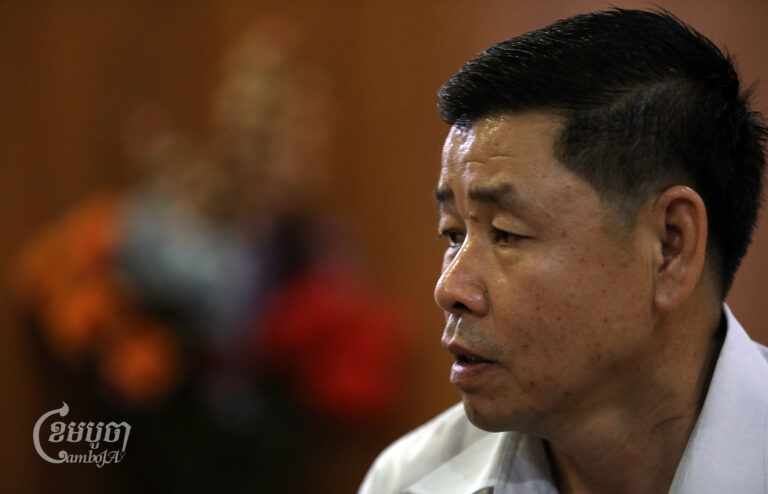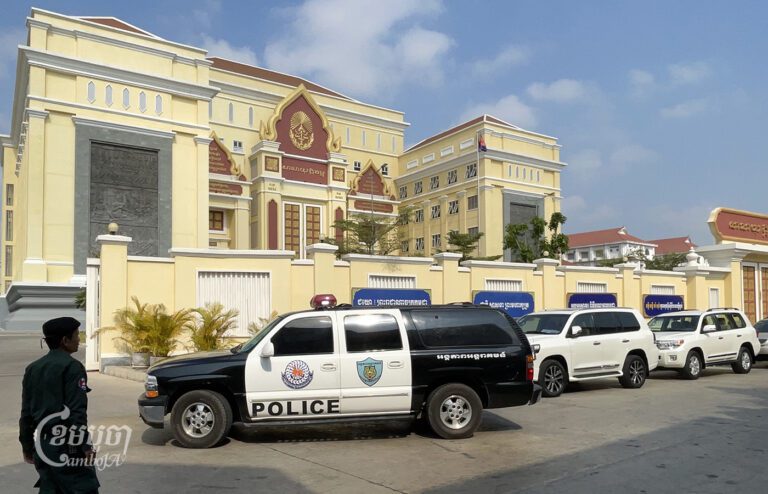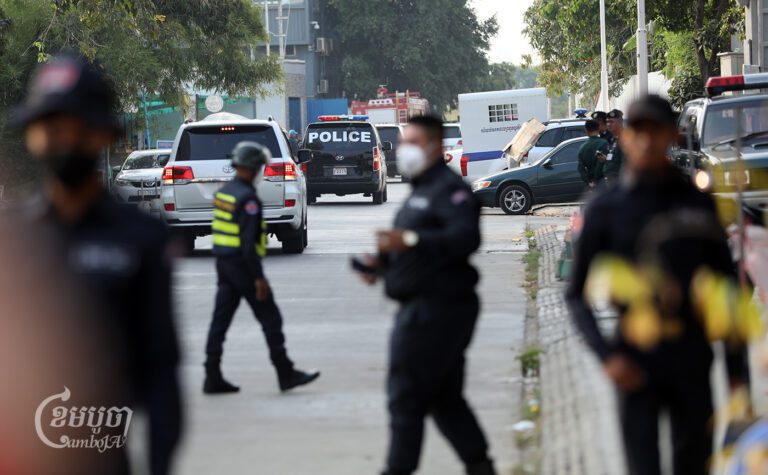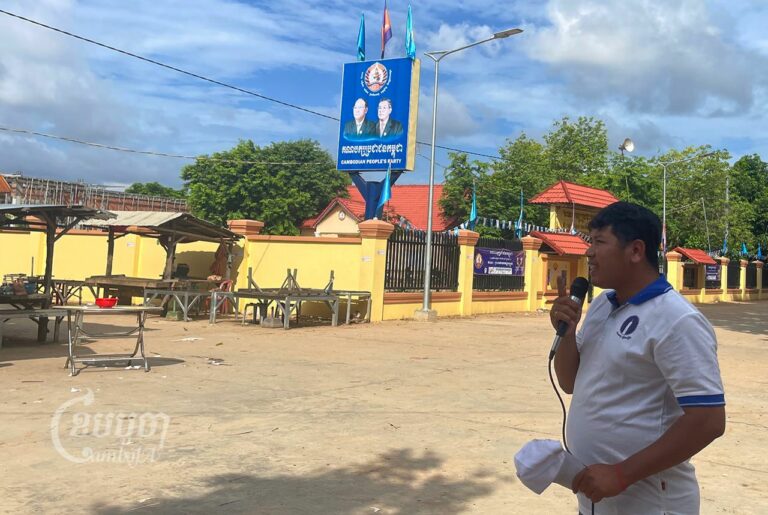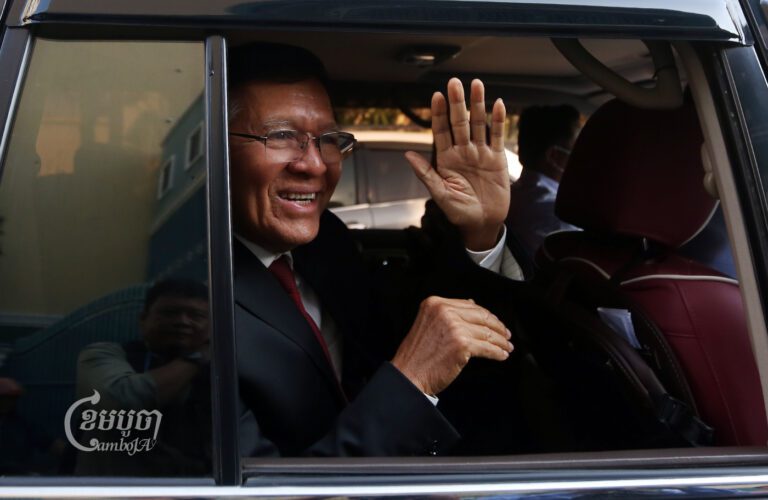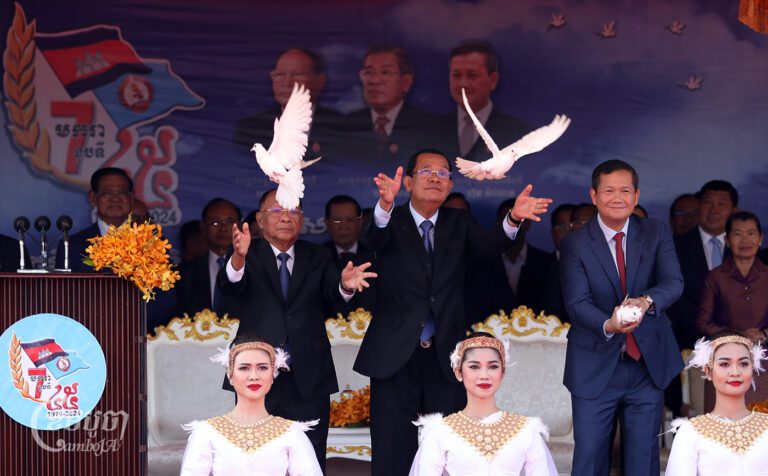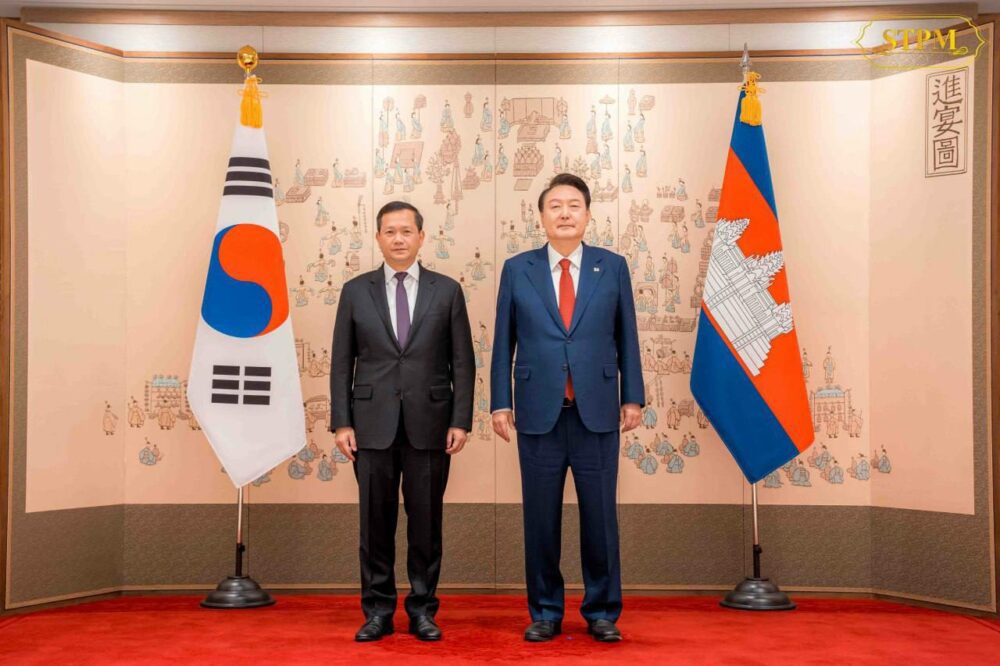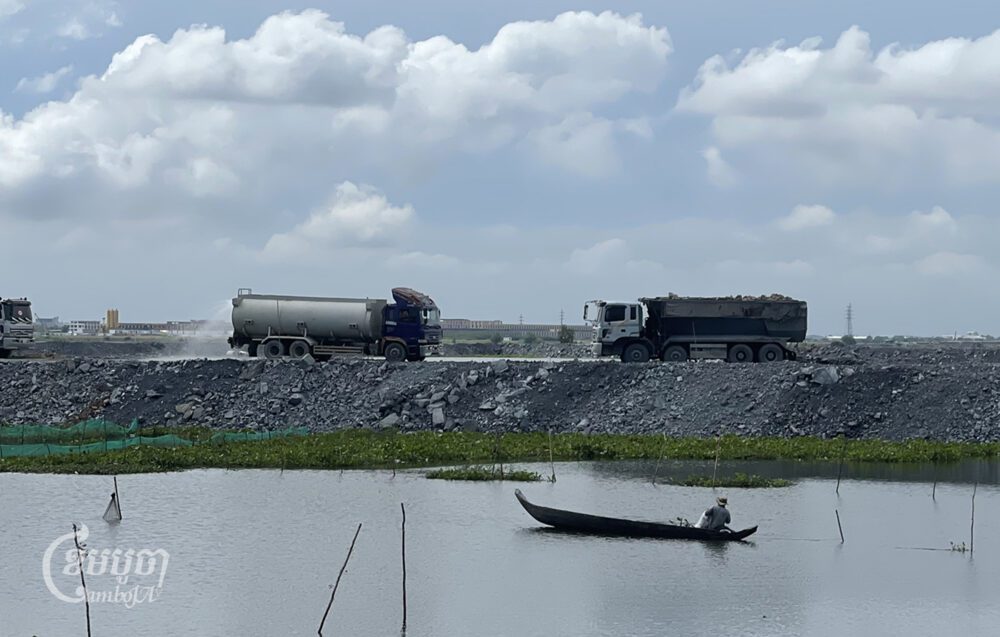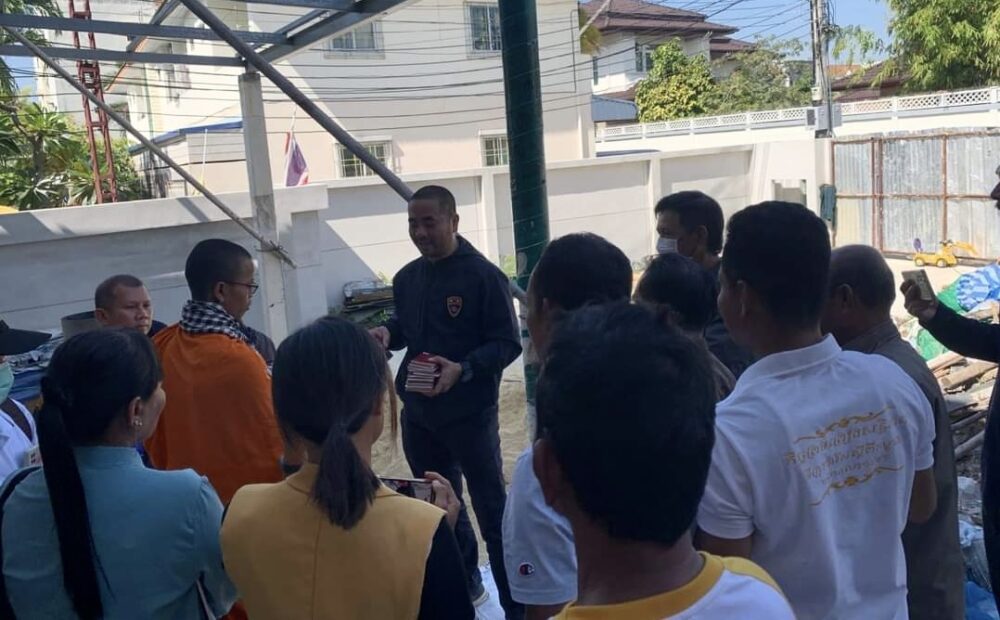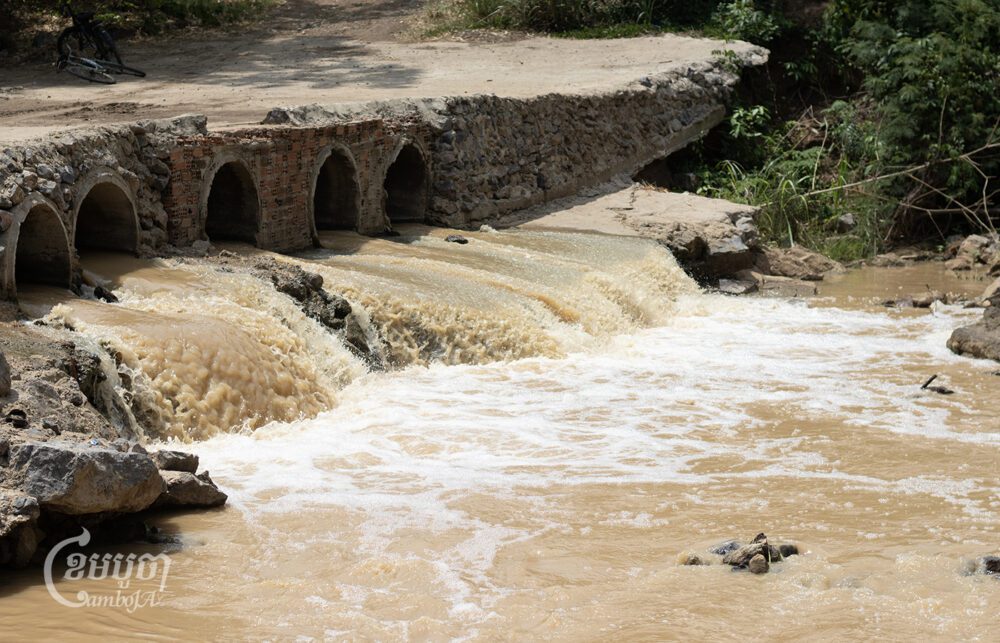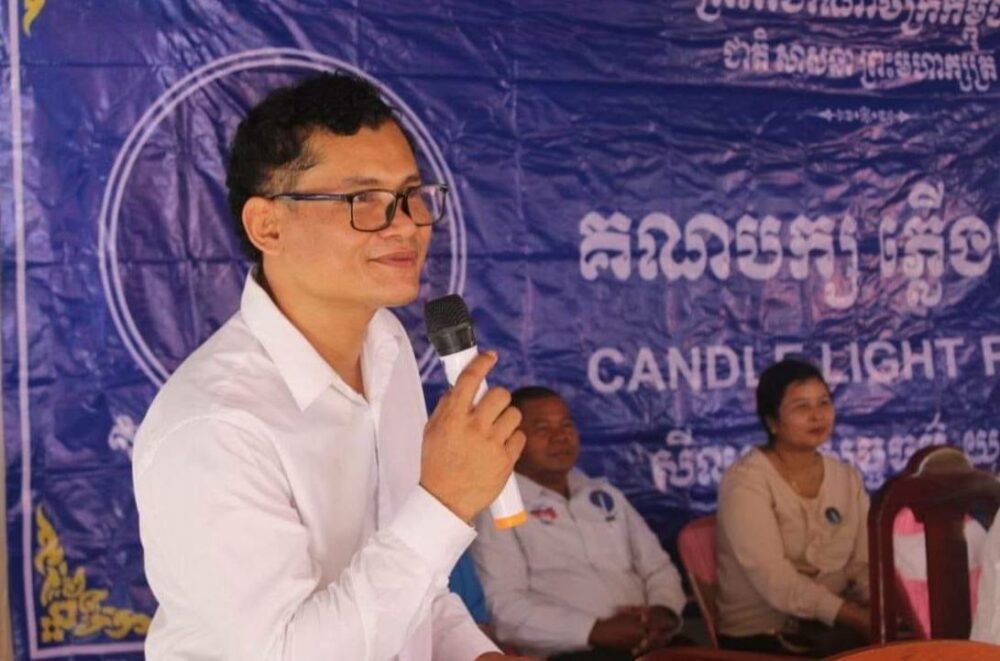Less than a week after walking free from Prey Sar Prison in Phnom Penh, where they spent nearly two years in jail, two activists from the outlawed opposition Cambodia National Rescue Party (CNRP) remain unclear about their political careers and affiliations.
“Because I was in prison for a long detention of 18 months, [I am] like a frog in the well, and I don’t know anything [about the political situation] right now. I don’t know where I will go,” Lors Chhenglay told CamboJA when he arrived home in Bavel district, where he is a former district councilor, on Tuesday last week.
Both Chhenglay and Ouk Chhum, a former commune chief of Klaing Meas commune of Battambang province, were released from prison on January 10, after completing their jail term for incitement causing serious disturbance to social security – following a private phone call they had about the predicted death of Prime Minister Hun Sen by 2023.
Since the dissolution of the CNRP party in 2017, both members and supporters of the political opposition have undergone sustained attack on their freedoms – in the form of excessive surveillance, violence and judicial harassment. Many former CNRP activists have been summoned, arrested and detained, exemplifying the government’s continued infringement of its citizens’ political rights.
As commune elections approach on June 5, 2022, some CNRP members and activists who have been released from prison have become affiliated with splinter opposition parties.
Others, such as Kong Raiya, remain unclear on whether to engage in politics or remain silent for a while. Raiya spent 18 months in prison for his Facebook post calling for a “color revolution” in 2015, and he was arrested again in 2019 for printing a T-shirt featuring the words and image of Kem Ley, a prominent political commentator, to commemorate the third anniversary of his murder. Raiya is now a member of the Candlelight Party’s steering committee and youth wing.
“I don’t know who has created political parties,” Chhenglay said. He pointed out that he was behind bars for a long time, which meant that he was unable to keep up with political developments.
However, at 55 years of age, he intends to continue to serve the interests of the people. “I won’t stop doing politics.”

Civil society groups have called on the government to recognise that the right to associate with political parties and the right to freedom of expression are protected under both international and domestic law.
Chhenglay has maintained his innocence over the incitement charges, noting that the legal case against him was politically motivated, as the ruling Cambodian People’s Party (CPP) was unhappy with the CNRP for defeating it in the 2017 commune elections.
He said that the elements of incitement had not been made out, since Chhum had only seen a Youtube video of an astrologer predicting Hun Sen will die by 2023 and had subsequently called him to ask whether he had seen it.
“I think the incitement charge is politically motivated, which is related to my activity in the past,” Chhenglay said. For that, he said he had received a lot of support from villagers who were not satisfied with the CPP.
He also pressed that if the authorities continued to enforce Articles 494 and 495 of the Cambodian Penal code, they would restrict public freedoms and prevent people from speaking out about any injustice that occurs in their commune.
Chhenglay has supported former opposition figure Sam Rainsy since 1995, and he is now considering joining the Candlelight Party.
“[Wherever] Sam Rainsy goes, I will be there, because he is like a father for giving birth [to democracy],” he said.
“Frankly, I don’t care anymore about imprisonment because [I live my life] to serve the nation,” he said.
Former CNRP member Chhum Puthy, 43, who was released from prison last November, has decided to join the Candlelight Party.
“I will still continue my goal in demanding rights, freedoms and democracy,” he said – also despite the possibility of imprisonment.
Puthy joined the party in December, as a member of Svay Rieng provincial working group, while he remained under court supervision for two years, during which he was sentenced to jail for 20 months for incitement. He had been arrested in August 2020 in Phnom Penh, while monitoring the arrests of environmental activists.
Chhenglay recalled that on July 10, 2019, five police officials detained him
without an arrest warrant while he was riding a motorbike in Bavel district. “They asked me to go to the district police to [answer some questions], and [then] they will allow me to return home.”
After arriving at the district police station, he was read the warrant for his arrest, accused as a “rebel outlaw”, and dragged into the provincial police’s vehicle to be brought to Phnom Penh Municipal Court.
He added that when he arrived, the court had some serious questions for him, especially related to Sam Rainsy. Had Rainsy ordered something to be done?
Chhenglay told the court that he was the Bavel district chief of the CNRP executive working group and implemented the party’s policy regarding electoral procedures at district level – such as counting ballots, recruiting political agencies, and instructing the public on how to tick their voting ballots.
He denied he had ever heard an astrologer say Prime Minister Hun Sen would die by 2023.
“I didn’t hear all the words. I just picked up a phone call from Ouk Chhum, and just heard the word ‘Mr. Hun Sen’. And then I turned [the call] off due to the lightning outside my home,” Chhenglay said.
“I didn’t really hear [much], only the word ‘Hun Sen’,” he told the court.

Deplorable conditions at Prey Sar Prison
Inmates often complain about overcrowding in prison cells, as well as poor sanitation, low-quality food, and insufficient water for bathing.
Chhenglay said that he shared a small space with 27 inmates in Prey Sar Prison, which felt claustrophobic.“We can’t [be] comfortable sleeping like [in] our home. We have to lie on one side of our body because it is very crowded.”
“I thought, in my mind, that they are very cruel to mistreat us, and I will die here [in prison] because I began to lose weight [and had a] stomach ache – so my political career will end here,” he added.
Nuth Savna, spokesman for the General Department of Prisons, rejected the former CNRP members’ claim of bad sanitation and water shortage.
“I don’t know how to comment, but in some cases related to former CNRP activists, I heard from other inmates who said they were wasting water, that sometimes they were bathing five times a day,” Savna said.
“I reject what they have asserted [about the water shortage] as incorrect,” he said, adding that prison officials have provided enough water and so sanitation is an individual responsibility.
He said that on average, each inmate was supplied with about 20 liters of clean water, in addition to rain water and a pond for flushing toilets and growing crops.
Chak Sopheap, executive director of the Cambodia Center for Human Rights, said that the 18-month long detention of the two former CNRP party members was the result of “ridiculous charges of incitement”, which exemplifies how grim the human rights situation has become in Cambodia.
“There are serious reasons to think that the surveillance of these two individuals was politically motivated, making the interception of their telephonic communication both arbitrary and unlawful,” she said.
The fact that these two individuals were charged for opinions expressed during a private phone call adds to these concerns, she also said. Interference with an individual’s right to privacy is only permissible under international human rights law if it is neither arbitrary nor unlawful.
She noticed that in recent years, the government has grown increasingly intolerant of criticism and dissent, which authorities wrongly – and conveniently – equate with actions to be punished rather than normal occurrences in a democracy.
The government’s continued targeting of individuals for their perceived or actual affiliation to the CNRP illustrates the Cambodian Government’s failure to respect, protect and fulfill its citizens’ fundamental rights and freedoms, she added.
Ou Chanrath, vice president of the Cambodia Reform Party (CRP), said that the imprisonment of former CNRP members and other activists was calculated to break their spirits and stifle their freedom of expression, as well as the democratic process.
“Most of them are still afraid or have low self-esteem in leadership, and some people keep silent,” he said.
However, Chanrath believes that former CNRP members and other activists who have been released will not be dissuaded from politics.
He said that some activists who were charged with incitement, and who were involved with the “noodle campaign”, have joined the CRP.
He encouraged former opposition party members and activists who have been released, or who are under court supervision, to continue engaging in political activity and join whichever party they choose – to serve the nation and the interests of the people.


